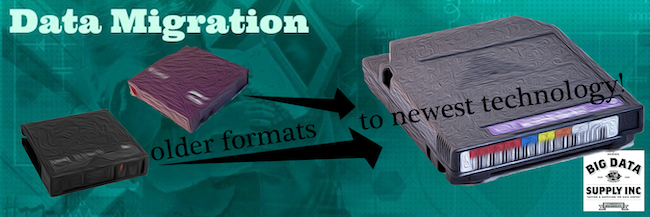
If you are considering the migration of data, you may have already realized the process is much more complex than you could have ever imagined. Don’t get down on yourself in case you get overwhelmed, as the effective handling of important data (and the many forms it comes in) is no laughing matter.
To help you take the right data migration steps, we hope the following tips will help:
• Find the right experts and partners. It is an excellent idea to develop a team that fully understands the data migration process and can walk you through the process. This includes getting the right people within your organization involved (i.e. technology specialists, data maintainers/managers, marketing teams, organizational leaders, and more) and seeking out a data migration expert for help and advice.
The earlier you take this step, the less likely you will make costly and time-consuming mistakes.
At Big Data Supply, we offer comprehensive data migration services for organizations of all sizes. We invite you to call our offices to discuss your needs.
• Get to know your data. It is very likely that you have a variety of data types/forms. The more you understand your data and its exact purpose, the more effectively you can develop a winning plan to meet your organization’s true needs. This will also save valuable time during the data migration process.
• Define your budget. Make sure you know exactly how much you can spend and what your return on investment will be as result of data migration. Without a clear understanding of your budget, you will be amazed at how much money you’ll burn through in a short amount of time.
When working with a data migration expert, it is best to be honest about your budget. This will allow for the suggestion of the very best methods and technologies to serve your interests.
• Develop a clear and concise plan. It is essential that you move into a data migration effort with a defined roadmap. This will reduce the work developers need to accomplish, while saving you both time and money.
• Think about the future. Make sure you build out a data management system that will last for years to come and can be expanded to meet your future needs. It’s no secret that technology is continually evolving – so create a flexible system that takes many different scenarios into mind. Refer to your experts for best practices, while sharing with them how you expect the business to change and grow.
• Get rid of unnecessary data. Once you become familiar with the multitude of data that has been collected over the years, you will be amazed at how much isn’t ever used or needed on a daily basis. Get rid of as much data as possible and/or figure out an inexpensive way to store legacy data (LTO tape may be an excellent option).
The secret to your success is careful planning and assuring you have the very best resources to migrate your data. Dare to find the very best ways possible to make your data work for you. Please feel free to connect with the Big Data Supply team for expert advice!